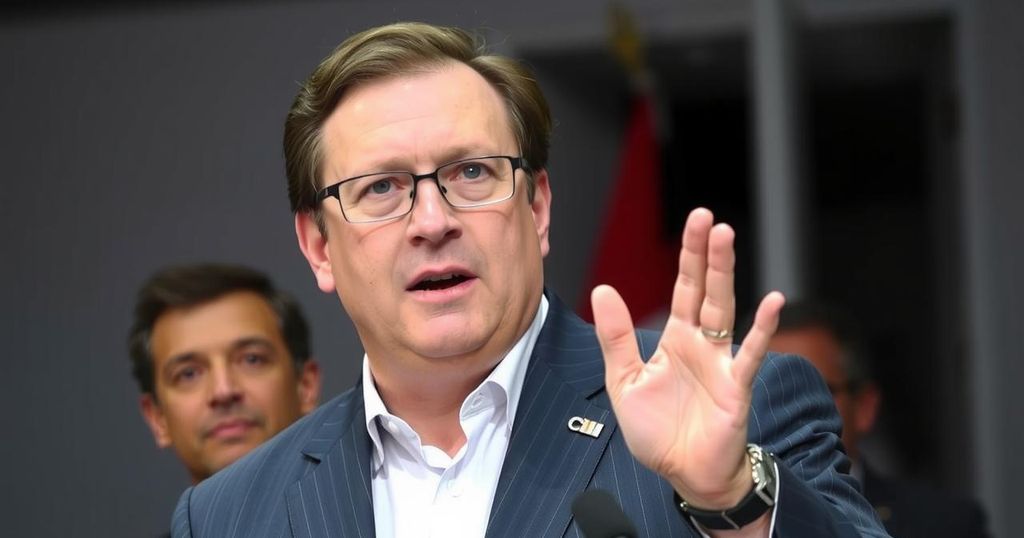Zoran Milanovic Poised for Second Term in Croatia’s Presidential Election

Early results from Croatia’s presidential election indicate that incumbent President Zoran Milanovic is set to win a second term, achieving 50.1 percent of the vote against his closest competitor, Dragan Primorac, who received 22.3 percent. An exit poll supports this trend, with further implications for Croatia’s political dynamics and international relations as the country faces economic challenges and government integrity issues.
President Zoran Milanovic, candidate of the opposition Social Democrats, is poised to secure a second term in the initial round of Croatia’s presidential election, according to early results from the State Electoral Commission. Preliminary data reveal that he garnered 50.1 percent of the votes based on returns from nearly 52 percent of polling stations, significantly ahead of his main rival, Dragan Primorac of the ruling Croatian Democratic Union (HDZ), who received 22.3 percent. An exit poll by Ipsos corroborated these findings, indicating a strong likelihood of Milanovic’s victory.
Out of approximately 3.8 million eligible voters, the election outcomes will proceed to a second round on January 12 if no candidate attains a majority. The role of president in Croatia is largely ceremonial but involves influence over foreign policy, defense, and security. Since beginning his term on February 18, 2019, Milanovic has had contentious exchanges with Prime Minister Andrej Plenkovic on various matters, particularly regarding public policy and the European Union’s stance on Ukraine.
Milanovic has positioned himself as a counterbalance to the HDZ-led government, which faces scrutiny as several ministers have departed amid corruption allegations. Croatia currently grapples with economic challenges, including rising inflation and a labor shortage. His previous election campaign emphasized promoting tolerance and liberal values, reflecting a commitment to these priorities during his presidency. While he has condemned Russia’s actions in Ukraine, he has also criticized the military support provided to Ukraine by the West, leading to accusations of being “pro-Russian” from Plenkovic. In defending his position, Milanovic emphasized, “As long as I am president, no Croatian soldier will fight in somebody else’s wars.”
Croatia’s political landscape is characterized by a significant rivalry between the opposition Social Democratic Party, represented by President Zoran Milanovic, and the ruling Croatian Democratic Union (HDZ). The presidential election draws attention not only due to its implications for domestic governance but also for its potential ramifications on foreign policy, particularly concerning the European Union and NATO’s military actions. Amidst rising inflation and public criticism of government integrity, the election results could signal shifts in public sentiment and political alliances in the region.
In conclusion, the preliminary results indicate that Zoran Milanovic is well-positioned to secure a second term as President of Croatia, demonstrating substantial public support compared to his rival. The electoral outcome may reflect broader perceptions of governance amid ongoing economic challenges and political discontent regarding corruption. Milanovic’s presidency has been marked by contentious debates over foreign policy, particularly in relation to Western military involvement in Ukraine, as he seeks to establish a stance that prioritizes Croatia’s autonomy and security.
Original Source: www.aljazeera.com







